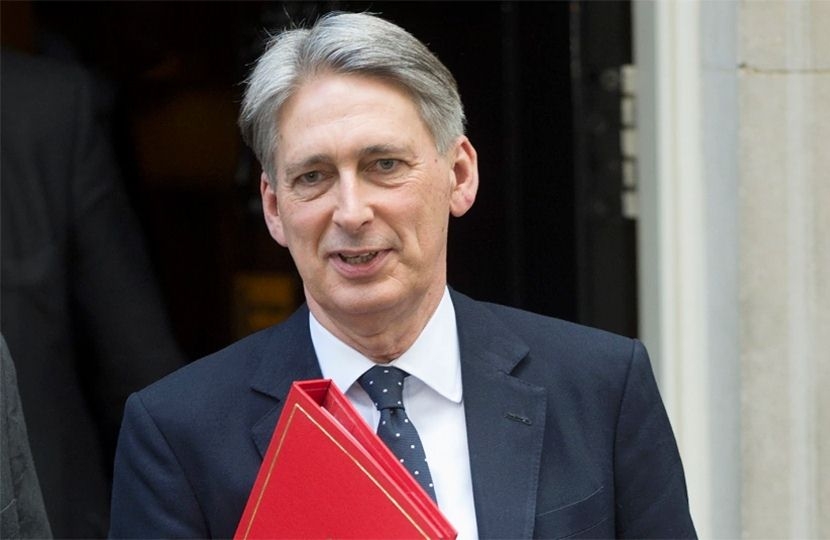
The Rt Hon Philip Hammond MP, Chancellor of the Exchequer, summarises his 2016 Autumn Statement:
Six years ago, we took over an economy on the brink of collapse, with the highest budget deficit in our peacetime history.
We took the tough decisions to tackle that deficit, rebuilt Britain’s shattered fiscal credibility and created more than 2.7 million new jobs.
The 2016 Autumn Statement I gave today provides an economic platform with certainty and stability at its heart. As the UK leaves the EU and as we begin writing this new chapter in our country’s history, we have set out how we will provide support for our economy through investment and job creation; and how we will provide help for ordinary working people with the cost of living.
Long-term challenges
It tackles the long-term challenges facing the country, by investing in infrastructure and innovation to boost long-term economic growth.
Raising productivity is essential to delivering the high-wage, high-skill economy that will deliver more jobs and higher living standards for people across the country – and that’s why we are acting, with a £23 billion National Productivity Investment Fund, to invest in our infrastructure, transport, digital economy and to build the homes that we need.
It provides the confidence and certainty that our economy needs with a clear plan to get the country back to living within its means.
Out of income tax
Our new draft Charter for Fiscal Responsibility will see the public finances returned to balance as early as possible in the next Parliament, with a secondary target for the deficit to be below 2% of GDP by the end of this Parliament, public sector net debt as a share of GDP falling by the end of this Parliament, as well as welfare capped.
And it signals our help with the cost of living for millions of ordinary working people. As well as taking millions of people out of income tax, this Government has introduced 15 hours a week of free childcare for 3 and 4 year olds, raised school standards and invested in the NHS.
But more needs to be done to help families make ends meet. That’s why we are raising the National Living Wage – a pay rise for over a million people, and £500 for a full time worker; that’s why we’ve announced a freeze in fuel duty for the seventh successive year, saving the average car driver £130 a year in total; and that’s why we will reduce the taper rate for Universal Credit, increasing the incentive to work and helping three million households.
This is an Autumn Statement that will build an economy that works for everyone.
On the brink of collapse – thanks to Labour
As I said at the start, six years ago, the economy that Labour left us was on the brink of collapse. And every step of the way, the Labour Party have been sniping from the sidelines, opposing every decision we’ve taken to fix the economy.
They want to raise taxes, reverse savings and spend hundreds of billions of pounds we don’t have. It just shows they couldn’t control the public finances and would crash the economy like they did last time.
Today we resolve to prepare Britain to seize the opportunities ahead – and to do so in a way which builds an economy, where everybody has a chance, where every part of this United Kingdom contributes to and shares in our future success.
- We are open for business with the fastest growing major advanced economy in the world this year.
- We are building the homes that we need with a new £2.3 billion Housing Infrastructure Fund to support 100,000 new homes.
- We are investing in key infrastructure projects across our country with a new £23 billion National Productivity Investment Fund.
- We are increasing the National Living Wage to £7.50 an hour – a pay rise for 1.3 million working people and a rise of £500 for the average full time worker.
- We are freezing fuel duty for the seventh year in a row, saving the average car driver £130 a year and the average van driver £350 a year.
What a contrast that is to the situation that we found ourselves in six years ago – an economy on the brink of collapse, a deficit that was soaring and millions out of work.

